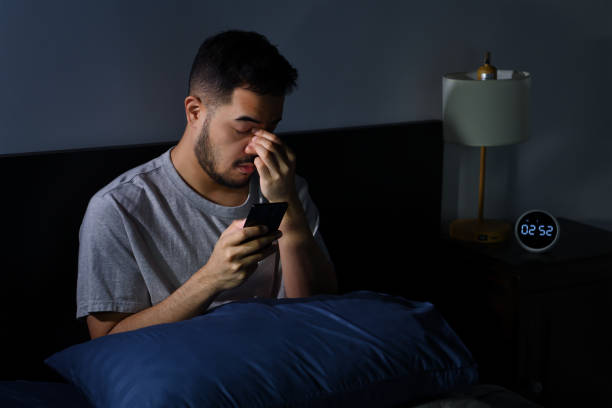
How Revenge Bedtime Procrastination Hurts Your Health
It’s 2 AM, and your alarm is set for 7 AM. Instead of sleeping, you’re doomscrolling through TikTok, knowing you’ll be tired in the morning. This sacrifice feels necessary, a precious sliver of “me time.” This phenomenon is known as “revenge bedtime procrastination,” the deliberate delay of sleep to reclaim personal time after a demanding day.
The Short-Term Reward
During “revenge bedtime procrastination,” individuals intentionally delay sleep to reclaim personal time lost during the day. As clinical psychologist Angela Bunag-Joaquin explains, “It is their way of taking back the time they are supposed to have for themselves because they need to do other activities.”
Though seemingly minor, it’s a choice that reflects a desire to regain autonomy over one’s schedule, even at the expense of much-needed rest.
Why Do We Stay Up Late?
We spend our days on school, work, and other tasks, leaving little time for ourselves. Because of this, many people stay up late to do things they enjoy.
While it feels good initially, it leads to tiredness, grumpiness, and a foggy mind the next day, making it hard to start with energy. This ends up costing us sleep, hurting our overall health and productivity.
Why It’s Hard to Resist
“Revenge bedtime procrastination” stems from a scarcity of free time, making leisure feel more precious. This is then reinforced by instant gratification from activities like social media and binge-watching, which provide quick dopamine boosts.
When the COVID-19 pandemic hit, the boundaries between work and rest blurred, making it more difficult to break the cycle.
The Long-Term Cost
Insufficient sleep, as highlighted by The Sleep Foundation, impairs memory, focus, and decision-making, leading to decreased productivity and increased irritability. Furthermore, it compromises the immune system and elevates the risk of future heart issues.
Taking Back Time Healthily
Prioritize “quiet time,” especially in the mornings. Throughout the day, incorporate short breaks to promote better rest at night. It also helps to rethink sleep as a form of self-care, as adequate rest is what provides us the energy we need for the day ahead.
READ: Insomnia Risk: Put Down Your Phone Before Going To Bed
“Revenge bedtime procrastination” may feel good for a moment, but it does more harm than good. Late nights make us tired and irritable and can bring long-term health risks. Let’s remember that true control isn’t about pushing bedtime later—it’s about choosing rest so we can face the next day with clarity and strength.



